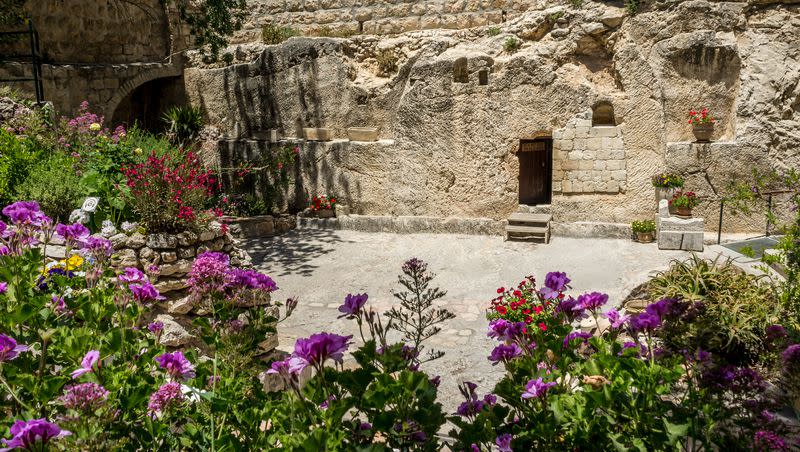Opinion: Easter offers universal hope

- Oops!Something went wrong.Please try again later.
The world pays attention to noise. An old adage is that squeaky wheels get grease, meaning that people who want attention have to find ways to grab it by being heard.
Things of real value, however, are quiet and unassuming — unremarkable by worldly standards and discerned only by the serious and thoughtful.
Not far from the bustle of modern-day Jerusalem’s old city, where tourists and vendors intermingle in a noisy daily jumble of sounds, is a well-tended and peaceful garden. In this garden is an empty tomb believed to be more than 2,000 years old. It may or may not be the exact tomb that once housed the body of Jesus Christ after his cruel crucifixion. Symbolically, however, it is perhaps the most important place on planet Earth.
Every day, the Deseret News publishes obituaries on its website — the life stories of people who have recently died. Each one leaves behind loved ones who mourn, often intensely.
News pages are filled with stories of crime, war and atrocities that are evidence of the worst that humans can perpetuate on each other. Other stories tell of accidents, natural disasters, diseases, pandemics and starvation.
Death, when confronted directly, is a heavy door. Its finality can seem smothering. People whose personalities once filled rooms with opinions, humor, talents and wisdom are silenced and cannot be summoned.
Or so it would be without Easter.
Related
Because of Jesus Christ on that first Easter, death is not the final word. His resurrection that morning unlocked the promise of eventual resurrection for all. The Bible records, in Matthew 27:52-53, that at the time of Christ’s resurrection, “the graves were opened, and many bodies of the saints which slept arose, and came out of the graves … and went into the holy city, and appeared unto many.”
The Book of Mormon, sacred text to millions of Christ’s followers, tells of a similar event half a world away.
Because of Easter, all shall live again. Because of Easter, all wrongs shall be made right, all tears shall be wiped away and all injustices satisfied. It is the ultimate answer to crime, mass shootings, wars and the brazen acts of dictators and anyone else who wields power unjustly over others. It is the answer to secret misdeeds and conspiracies.
Most of all, however, Easter offers the universal hope of forgiveness. That hope always cuts two ways. Virtually everyone will encounter someone in life who wants to take advantage of them, hurt them or offend them. But absolutely everyone beyond an age of accountability also has hurt or offended someone else.
Forgiveness, therefore, requires quiet and reverent introspection from every person, and it requires them to forgive all others who have trespassed them.
Related
We cannot see the promises of Easter all at once, of course. It requires faith to believe that Jesus of Nazareth was resurrected following his brutal and inhumane execution. It requires faith to believe that his resurrection paved the way for humankind’s immortality.
But once that seed of faith is planted, the message of the empty tomb places significant requirements on us, requirements of hope, humility and charity.
Every believer must come to grips with a world in which death is not final and unrepented misdeeds cannot ultimately go unpunished. That realization changes how we see and treat each other and what things really are of the highest value and importance.
Getting to that point requires quiet contemplation, prayer and deep thought. It requires submission to the will of a higher authority. In other words, it requires the opposite of what the noise of the world and its shiny, alluring objects and loud carnival barkers would have you think are important.
Easter is the perfect time to contemplate this.

